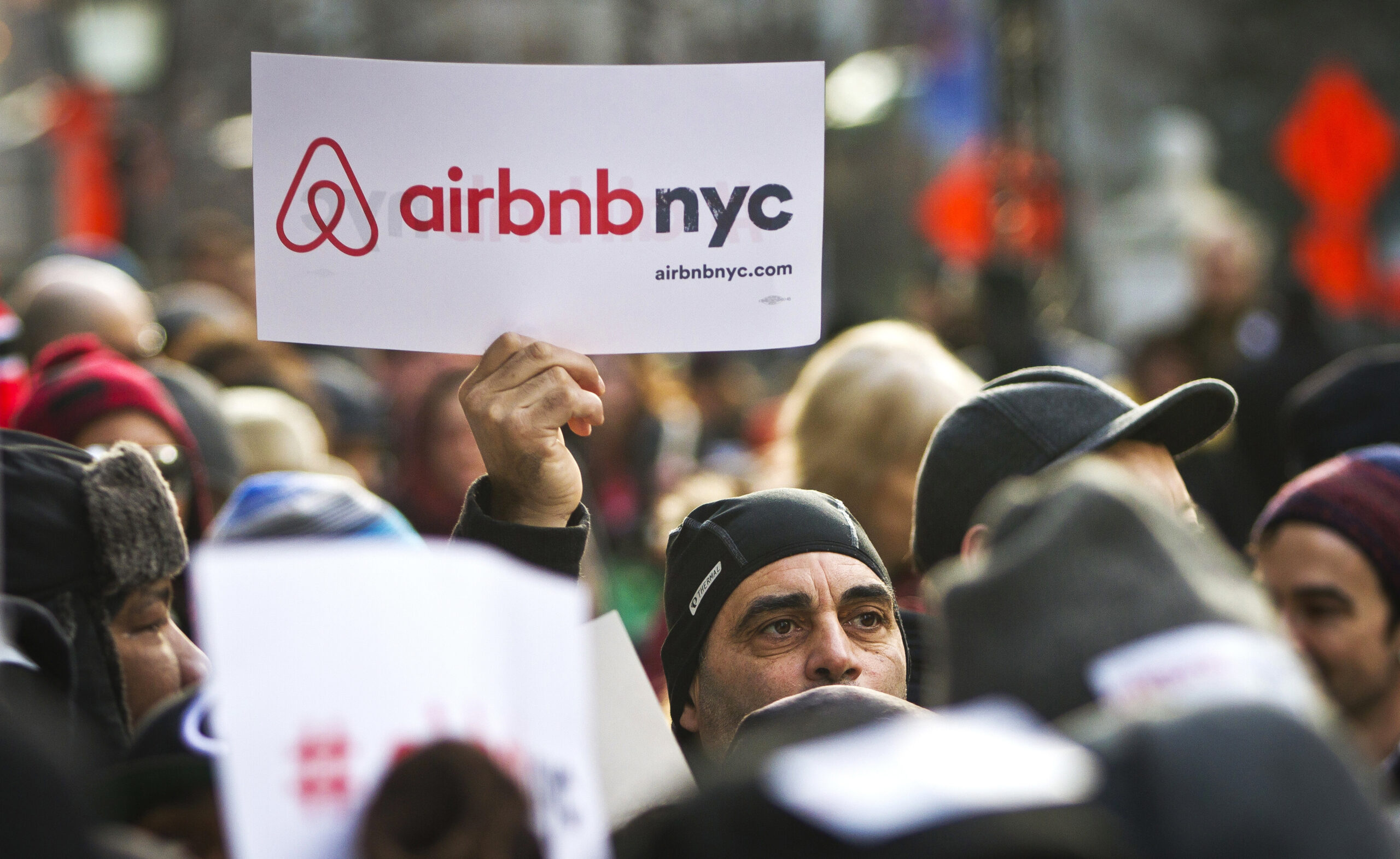The share economy has democratized travel for many, making it cheaper to explore new places while supposedly providing guests with more personal service than they would receive from hotel chains or taxi cabs. But it’s no secret that the ever-popular AirBnb has caused damage since launching almost 10 years ago. Airbnb has amplified the problem of gentrification in some of its most popular destinations. Small historic cities, many of whose central districts were designed hundreds of years ago for much smaller populations, are particularly feeling the crunch.
When residents list their apartments on AirBnb, these neighborhoods can become overcrowded and prompt landlords to raise rents, making it more difficult for longtime residents to afford the pricey real estate. Unlike New York City, whose legal fight against the tech company has been largely prompted by a lobby of hotel chains hurting from the competition, plenty of other cities have fought, or are currently waging, their own battles against AirBnb for an arguably nobler cause: their hard-hit middle class. Here are six cities that have been particularly impacted.
1. San Francisco
The Airbnb gentrification controversy may have launched in 2014 in the tech company’s own hometown when a San Francisco man sued his landlord for wrongful eviction after the landlord reportedly kicked him out of his apartment in order to make space for Airbnb guests. The landlord realized she could charge tourists $125 to $145 a night for the apartment, instead of the $1840 a month the plaintiff had been paying for years prior. It’s not an uncommon story in San Francisco, already one of the most expensive cities in the country facing severe and rapid gentrification. “We have a dwindling stock of rent-controlled units in San Francisco,” Steven Jones, editor-in-chief of the San Francisco Bay Guardian, told Slate in 2014. “Any of those precious few units going to visiting tourists rather than permanent residents certainly adds to the housing crisis here.”
2. Berlin
Berlin was one of the earliest to wage a legal battle against Airbnb, after rents rose by 8% between 2012-2013 when the site helped bring in a rush of tourists. Its effects were especially felt in the famously inexpensive neighborhoods of the German capital, which has been a bohemian mecca for struggling artists. “Berlin was an extraordinarily affordable place for the past 10 years,” one Airbnb host told Christian News & Wire. “But everyone knew that wouldn’t always be the case.”
3. Paris
It’s one of the most popular destinations on Airbnb, with 40,000 properties listed in 2015compared to 16,000 in New York. To counter a rent hike, local government began fining Parisians up to 25,000 euros for violating a no-Airbnb rule that year. The housing advisor to Paris’ mayor told Bloomberg “We can’t have entire neighborhoods or buildings turned into tourist homes…that’s why we’re fighting to keep Parisians inside Paris and we won’t let tourist rentals eat up their space.”
4. New Orleans
In a city where tourists outnumber residents 25 to 1 in peak months, New Orleans’ government has been under pressure for some time to limit the influx of Airbnbers. In 2016, the city council voted to ban Airbnb in most of the historic French Quarter, especially targeting those they classified as “bad actors,” or “short-term rental hosts who rent to large groups of people who throw noisy parties and cause trouble in neighborhoods,” as the Times-Picayune put it.
5. Florence
Residents of the ancient city have taken a beating from Airbnb-fueled gentrification in recent years. The Telegraph reports that almost 20 percent of residential space in the historic city center of Florence is listed on the site. Locals, increasingly strained by the subsequent rise in rents, are being pushed out. The influx of tourists to the city center has changed the cultural character of the city as well. As Stefano Picascia of the University of Siena said, “The center of Florence is now Disneyfied. It’s basically a theme park for tourists.”
6. Barcelona
Other European cities with geographically small historic center districts are feeling a similar crunch. Tourism in Barcelona skyrocketed to 34 million visitors in 2016, up 25 percent from 2012, according to the Independent, and Airbnb has similarly been linked to rent hikes. Barcelona landlords raised housing costs by an astonishing 16.5 percent in 2016.


